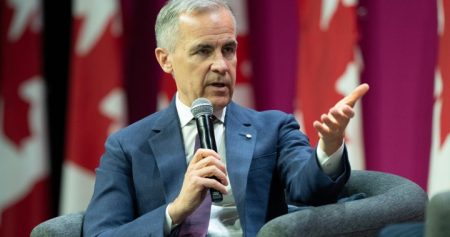The fatal shooting of UnitedHealthcare CEO Brian Thompson by Luigi Mangione has sparked a complex and concerning reaction, raising fears of a potential political movement emerging from the tragedy. Representative Marjorie Taylor Greene has expressed apprehension that the incident could be leveraged by the left to advance the cause of socialized medicine. While Greene’s concern stems from a perceived connection between Mangione’s alleged motivations and progressive healthcare reform proposals, the reality of such a movement coalescing around Mangione remains unclear. The suspect’s own political leanings are ambiguous, with online activity suggesting a mix of conservative and religiously motivated viewpoints, not necessarily aligning with the progressive ideology Greene fears.
Greene’s apprehension stems from the observation that some segments of the public appear sympathetic to Mangione, possibly fueled by resentment towards the health insurance industry. She draws parallels to Senator Bernie Sanders’ “Medicare For All” campaign, suggesting that Mangione could become a symbolic figure for those advocating for socialized medicine, potentially inspiring further acts of violence against figures in the healthcare industry. However, conflating public frustration with the insurance industry with support for violence against its leaders is a dangerous oversimplification. While justifiable anger exists regarding healthcare costs and access, it does not automatically translate into condoning murder.
Despite Greene’s concerns about a burgeoning left-wing movement, the evidence supporting such a claim remains tenuous. Mangione’s social media presence does not explicitly endorse leftist ideologies. Rather, it reveals a complex mix of viewpoints, including admiration for conservative figures like Tucker Carlson and concerns about the decline of Christianity. This nuanced picture complicates any attempt to categorize Mangione as a strictly left-wing actor or to project his motivations onto a broader political movement. Furthermore, the widespread online attention directed at Mangione seems driven more by his perceived physical attractiveness than by genuine political solidarity.
The reactions to Thompson’s death and Mangione’s arrest have exposed a deep-seated public discontent with the health insurance industry. While this sentiment may resonate with some on the left who advocate for systemic change, it is not exclusive to any political ideology. Many Americans across the political spectrum share frustrations with rising healthcare costs, limited coverage, and perceived corporate greed within the industry. It is essential to separate legitimate grievances about the healthcare system from any justification of violence. Condemning Thompson’s murder while simultaneously acknowledging public frustration with the healthcare system is not contradictory.
The Mangione case underscores the urgent need for addressing the underlying issues that contribute to public disillusionment with the healthcare system. Meaningful reforms are necessary to ensure equitable access to affordable and quality healthcare for all Americans. Focusing on these systemic issues, rather than projecting political motivations onto a complex and tragic event, is crucial to prevent further polarization and potential violence. Engaging in constructive dialogue and policy reform is the most effective way to address public concerns and prevent future tragedies, rather than succumbing to fear-mongering and political opportunism.
It is crucial to refrain from exploiting this tragic event for political gain. Attributing a singular political motive to Mangione’s actions or projecting them onto a nascent political movement is speculative and potentially harmful. The focus should remain on seeking justice for Brian Thompson and his family, understanding the complexities of the situation, and addressing the broader issues within the healthcare system that fuel public discontent. Rather than fueling division, this tragedy should serve as a catalyst for constructive dialogue and meaningful reform in the healthcare industry, ensuring that all Americans have access to affordable and quality care.










